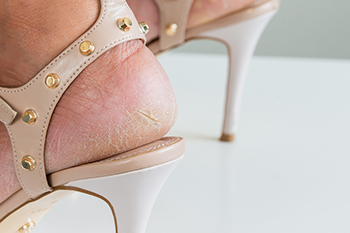Connect With Us
Blog
Items filtered by date: September 2021
What Is Tendonitis?
Tendonitis is a common cause of foot and ankle pain. It occurs when there is inflammation or irritation to the tendons that run along the feet and ankles, helping them move properly. When these tendons are injured through a sudden impact, repetitive overuse, or from biomechanical or medical conditions, the result is tendonitis, which can cause foot pain, swelling, stiffness, and changes in the shape of the feet. There are several different types of tendonitis, including Achilles tendonitis, peroneal tendonitis, posterior tibial tendonitis, extensor tendonitis, and anterior tibial tendonitis. If you are suffering from foot or ankle pain, it is strongly suggested that you seek the care of a podiatrist.
Foot and ankle trauma is common among athletes and the elderly. If you have concerns that you may have experienced trauma to the foot and ankle, consult with one of our podiatrists from Palm Beach Foot & Ankle. Our doctors will assess your condition and provide you with quality foot and ankle treatment.
Foot and ankle trauma cover a range of injuries all over the foot; common injuries include:
- Broken bones
- Muscle strains
- Injuries to the tendons and ligaments
- Stress fractures
Symptoms
Symptoms of foot and ankle injuries vary depending on the injury, but more common ones include:
- Bruising
- Inflammation/ Swelling
- Pain
Diagnosis
To properly diagnose the exact type of injury, podiatrists will conduct a number of different tests. Some of these include sensation and visual tests, X-rays, and MRIs. Medical and family histories will also be taken into account.
Treatment
Once the injury has been diagnosed, the podiatrist can than offer the best treatment options for you. In less severe cases, rest and keeping pressure off the foot may be all that’s necessary. Orthotics, such as a specially made shoes, or immobilization devices, like splints or casts, may be deemed necessary. Finally, if the injury is severe enough, surgery may be necessary.
If you have any questions, please feel free to contact our offices located in Boynton Beach, Palm Beach Gardens, and West Palm Beach, FL . We offer the newest diagnostic and treatment technologies for all your foot care needs.
What Are the Affects Cracked Heels Have on the Skin?
 There are two layers of skin that are called the dermis and epidermis. The latter is the outermost layer, and is where cracked skin often develops. Heel fissures is the medical name for cracked heels, which can come from standing on hard surfaces for the majority of the day. Additionally, wearing shoes that do not fit correctly may cause this condition to occur, and this can include wearing shoes that have an open back. There are medical conditions that may lead to cracked heels, such as diabetes, psoriasis and eczema. Patients have found mild relief when the feet are washed and thoroughly dried, followed by applying a good moisturizer to them. If you have cracked heels, it is suggested that you consult with a podiatrist who can effectively treat this ailment, and advise you on proper foot care techniques.
There are two layers of skin that are called the dermis and epidermis. The latter is the outermost layer, and is where cracked skin often develops. Heel fissures is the medical name for cracked heels, which can come from standing on hard surfaces for the majority of the day. Additionally, wearing shoes that do not fit correctly may cause this condition to occur, and this can include wearing shoes that have an open back. There are medical conditions that may lead to cracked heels, such as diabetes, psoriasis and eczema. Patients have found mild relief when the feet are washed and thoroughly dried, followed by applying a good moisturizer to them. If you have cracked heels, it is suggested that you consult with a podiatrist who can effectively treat this ailment, and advise you on proper foot care techniques.
Cracked heels are unsightly and can cause further damage to your shoes and feet. If you have any concerns, contact one of our podiatrists from Palm Beach Foot & Ankle. Our doctors can provide the care you need to keep you pain-free and on your feet.
Cracked Heels
Cracked heels appear unappealing and can make it harder for you walk around in sandals. Aside from looking unpleasant, cracked heels can also tear stockings, socks, and wear out your shoes. There are several methods to help restore a cracked heel and prevent further damage.
How Do You Get Them?
Dry skin is the number one culprit in creating cracked heels. Many athletes, walkers, joggers, and even swimmers suffer from cracked heels. Age and skin oil production play a role to getting cracked heels as well.
Promote Healing
Over the counter medicines can help, especially for those that need instant relief or who suffer from chronic dry feet.
Wear Socks – Wearing socks with medicated creams helps lock in moisture.
Moisturizers – Applying both day and night will help alleviate dryness which causes cracking.
Pumice Stones – These exfoliate and remove dead skin, which allows for smoother moisturizer application and better absorption into the skin.
Change in Diet
Eating healthy with a well-balanced diet will give the skin a fresh and radiant look. Your body responds to the kinds of food you ingest. Omega-3 fatty acids and zinc supplements can also revitalize skin tissue.
Most importantly, seek professional help if unsure how to proceed in treating cracked heels. A podiatrist will help you with any questions or information needed.
If you have any questions, please feel free to contact our offices located in Boynton Beach, Palm Beach Gardens, and West Palm Beach, FL . We offer the newest diagnostic and treatment technologies for all your foot care needs.

